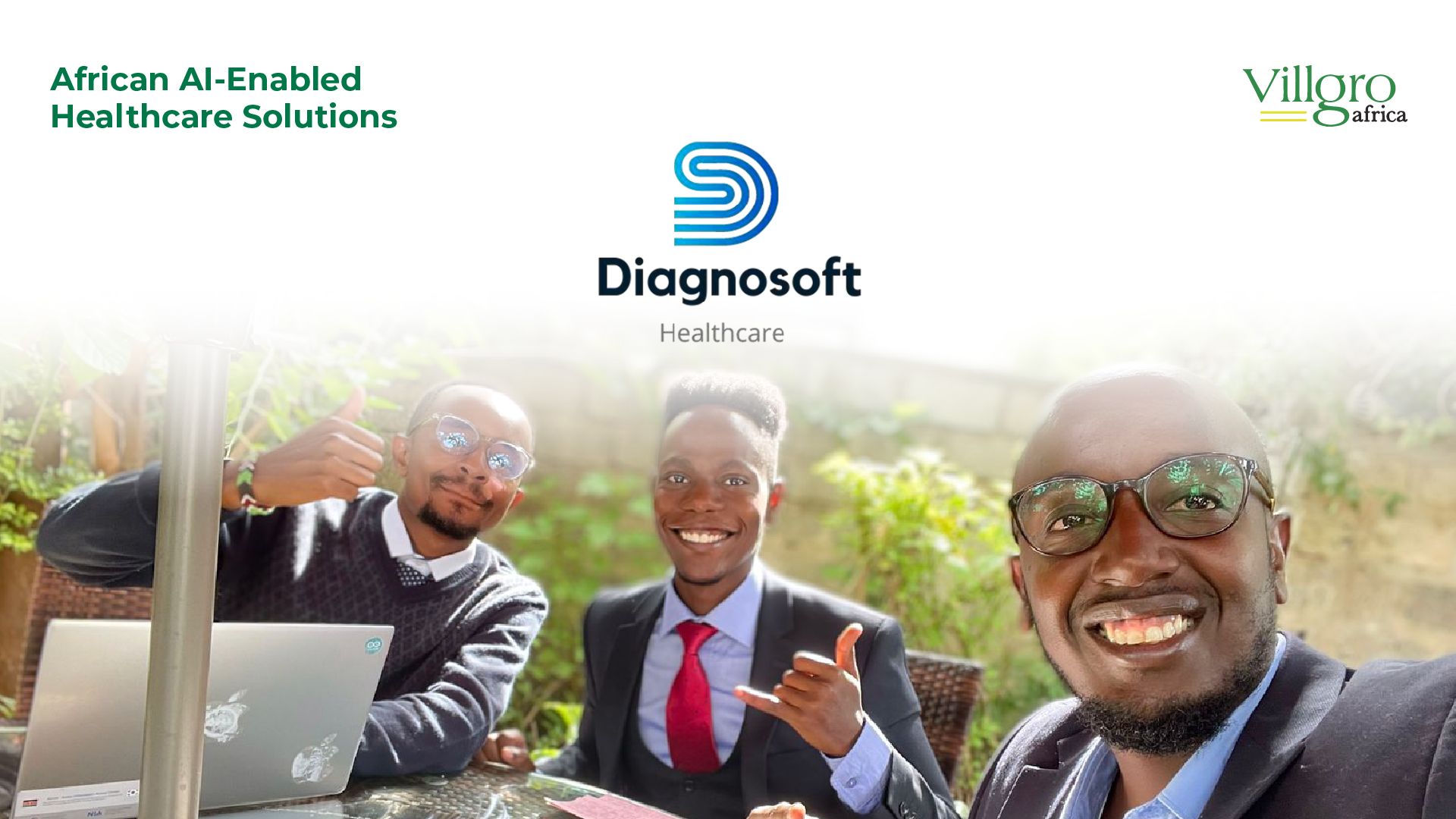
Diagnosoft is a health tech startup based in Nairobi, Kenya and we are building artificial intelligence models to support the process of diagnosing diseases from medical images.
If a patient goes to a hospital with a brain tumor or any other serious abnormality and that facility doesn’t have the necessary tools to effectively analyse the scans that are taken, it can result in a missed diagnosis, meaning that the patient carries on with their life without realizing that they have a serious problem. By the time the symptoms recur and the correct diagnosis is made, treatment can be intensive, expensive, and have a lower likelihood of being effective. However, if a patient walks into a healthcare clinic that is empowered using Diagnosoft AI models, the radiologist is able to effectively catch an early diagnosis that warns of anything serious. This means early detection, and more effective and affordable treatment options that are less invasive and disruptive.
There are only 150 radiologists in the whole of Kenya serving a population of roughly 50 million Kenyans. And when you extrapolate that into Africa, we have about 4,800 radiologists in the whole of Africa serving a populace of 1.3 billion, meaning that these radiologists are dealing with large caseloads, which leads them to have lower efficacy and leads to higher rates of misdiagnosis.
So as we started to figure out how to solve this challenge, we learned from conversations with radiologists and other healthcare practitioners that the system is quite inefficient. Diagnosoft is building a radiology information system, including picture archiving, data storage, and communication systems, that streamlines the entire radiology workflow, taking care of the entire patient journey. Our technology helps radiologists analyse images and also manage the whole process.
At Diagnosoft, we have learned along our journey about the human aspect of creating an effective product. We are IT people who know how to create AI models, but we have started to learn how to bring the human aspect into medicine, understanding that healthcare is basically about human interaction. We use AI as something that will not replace the human-to-human interaction but will be a tool that radiologists can use to become better. That has been a huge game changer for us. We’re really focusing on supporting radiologists, which influenced our decision to actually bring a radiologist onto our team and they’re an amazing person.
We’re also celebrating the recognition that we’re getting for the small strides we’ve made within the AI space. I was recently featured in the Daily Nation, for example, and these are small, encouraging wins that let us know we’re on the right track.
The main challenge for almost every AI company is data. Accessing local data has been quite a challenge for us ever since our inception. We pride ourselves in being an African solution to an African problem, addressing bias in artificial intelligence models, so a big part of that is accessing local data and retraining the model on it in order to have a contextualized AI model. It’s been a really big hurdle when it comes to building the trust needed to get access to that data. I believe that healthcare moves at the speed of trust. Artificial intelligence, right before ChatGPT hadn’t exactly been something that people trusted. But we’re building trust one relationship at a time by ensuring that we’re following the correct processes, bringing on a healthcare practitioner as part of our staff, and making sure that we’re exuding the confidence that the healthcare community needs to see so that they can be able to trust us and give us access to the data to solve this problem.
Things take longer than you expect. When you initially start and you have a huge idea that you’re sure is going to change the world, maybe it seems like the world isn’t quite reciprocating! You really have to create a lot of value, and creating value takes time. Learning how to solve people’s problems is not straightforward. This ties into perseverance. Last year was one of the hardest years I’ve ever gone through in my life, but perseverance was a key thing. Keep working at it, showing up every day consistently.
And, most importantly, I think it’s essential to have a bigger why. We all talk about purpose and what we’ve been put on this earth to do. Personally, my faith and belief in God is a really huge thing for me. I don’t think I would be where I am right now without my faith centering and holding me in place.
We were recently having a chat with Edwin, who is our main Villgro contact, and I went into a passionate rant about how Villgro has changed Diagnosoft for the better. I think the main thing is having this great resource of minds collectively supporting us from a variety of different fields, including business development, communications, AI, and more.
The exposure to the amazing network of startups and support systems through Villgro has also been really helpful. This program helped us out with the NVIDIA connection, which has supported us in getting some AWS credits that have been helpful in building AI models. I can’t emphasise enough the amount of trust that has been granted to Diagnosoft based on the fact that we are working with Villgro.
The funding has also been pivotal. It has allowed us to move with partners toward our goals and validate the product without having as much financial pressure. We’ve also been able to take important steps like bringing on a radiologist.
It’s really been an all around amazing experience and I have grown a lot as an individual in terms of being a CEO and how to strategise and build a company from the ground up. I cannot say enough that Villgro is really doing God’s work in the space of health tech support.